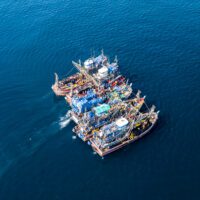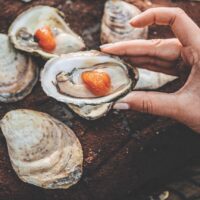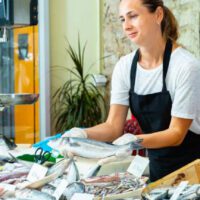Stop Seafood Fraud
We need traceable, legally caught seafood
Seafood caught illegally or with forced labour has no place on our plates
SHARE TO SHOW YOUR SUPPORT:
The Campaign
Without traceability, the results of forced labour, destructive fishing practices and illegal fishing can make their way onto your plate disguised as legal products. But there’s a way to end this.
Right now, our seafood may be hiding a myriad of dark secrets; in complex global seafood supply chains, overfished, mislabelled and endangered fish are all fair game. Forced labourers can work under brutal conditions that violate international human rights standards and illegal practices are left to run rampant.
There is a solution that can fight the abuse and reward good fishing practices and honest fishers: traceable, transparent seafood supply chains. In 2019, the Canadian government pledged to implement boat-to-plate traceability, and in 2021, it further pledged to introduce new laws to keep products of forced labour out of Canadian supply chains — yet no concrete action has been taken on either pledge since. That’s why we need your help!
Canadians overwhelmingly support seafood traceability and want the government to act. Nearly 90 per cent of Canadians support the federal government taking action to prevent products of forced, unpaid labour being sold in Canada. Ninety-two per cent of Canadians also want to see information about where, when and how seafood products were caught on seafood labels.
Seafood fraud is any activity that misrepresents a seafood product being sold. It affects public health and food safety, cheats consumers and hurts honest, law-abiding fishers and seafood businesses. It also undermines the environmental and economic sustainability of wild fish populations and even masks global human rights abuses by creating a market for illegally caught fish.
In spring 2021, Oceana Canada conducted our latest DNA investigation into seafood fraud and found that it is still a big problem in Canada – 46 per cent of samples from Toronto, Ottawa, Montreal and Halifax were mislabelled. This is just one percentage point difference from the 47 per cent mislabeling rate found among 472 samples Oceana Canada tested between 2017 and 2019, and consistent with earlier studies in Canada and globally. Read the latest report here.
To date, Canada’s seafood supply chain remains opaque, with weak traceability standards. By fulfilling its commitments, the government can keep illegal fish out of the Canadian market, stop forced labour in our supply chains, and protect our health, our oceans, our wallets and our seafood industry.
Canadians deserve to feel confident that their seafood is safe, honestly labelled and legally caught.
Take Action
TELL THE GOVERNMENT TO PRIORITIZE HEALTHY FISHERIES
Canada once had healthy oceans and thriving fisheries but decades of mismanagement and overfishing have devastated them. The future of coastal economies and ocean health depend on Fisheries and Oceans Canada's actions to end fisheries mismanagement.




